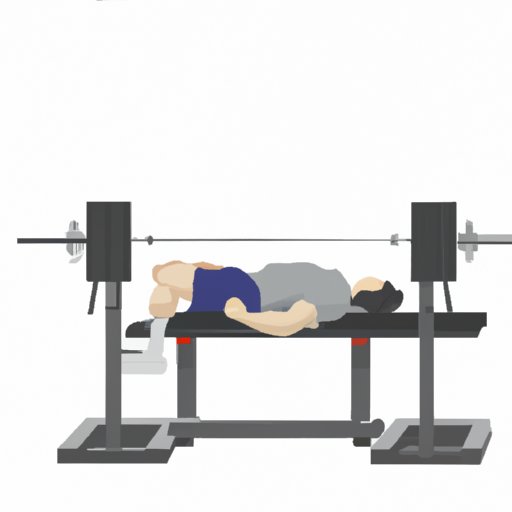
What is a Good Bench Press Weight?
When it comes to building upper body strength, few exercises are quite as effective as the bench press. However, for those just starting out or looking to set new personal records, determining what is considered a good benchmark can be confusing. Factors such as age, gender, and athletic background can all impact what is a reasonable expectation for bench press weight. In this article, we’ll explore these considerations and provide tips for setting realistic goals, techniques for improving, and common mistakes to avoid.
Average Bench Press Weight for Different Groups
Before diving into what constitutes a good bench press weight, it’s important to understand the baseline averages for different groups. On average, men in their 20s who are of average fitness and weight can expect to bench press approximately 135 pounds. Women of the same age and fitness level may bench press around 65 pounds. These averages will be impacted by factors such as age and athletic background – for example, professional male athletes can expect to bench press up to 300 pounds or more. It’s worth noting that these averages are just that – averages. They do not necessarily represent what is considered “good” or what someone should be aiming for.
Setting Realistic and Achievable Goals
Given the wide range of averages for different groups and the influence of individual factors, setting realistic and achievable bench press goals is crucial. Rather than focusing on a specific number, aim to challenge yourself while maintaining proper form and technique. One way to do this is to use percentage-based training. For example, a beginner might aim to bench press 60-70% of their body weight. Someone more experienced might aim for 80% or more. It’s important to track progress and adjust goals accordingly. Don’t be discouraged if progress is slow – building strength takes time.
Significance of Bench Press to Body Weight Ratio
Another helpful metric for determining what constitutes a good bench press weight is by looking at the ratio between bench press weight and body weight. A person who weighs 200 pounds and can bench press 200 pounds is not necessarily stronger than someone who weighs 150 pounds and can bench press 150 pounds. Similarly, someone who weighs 130 pounds and can bench press 100 pounds may be making better progress than someone who weighs 200 pounds and can bench press 150 pounds. This is because the second person’s ratio is actually smaller despite lifting more weight. Comparing bench press weight to body weight can provide a more holistic view of relative strength and progress.
Techniques and Tips for Increasing Bench Press Weight
Not all bench press gains are created equal, and proper form and technique are essential for safe and effective lifting. Before increasing weight, ensure that proper form is being used – this includes engaging the chest muscles properly, arching the back slightly, and keeping the barbell stable. Incorporating progressive overload and other techniques such as pause reps and using resistance bands can also help to increase strength. It’s important to remember, though, that not all gains need to come from increasing weight. Varying the tempo, range of motion, and incorporating other exercises can also provide gains and prevent overtraining.
Common Mistakes and How to Avoid Them
Increasing bench press weight quickly may be tempting, but it can also lead to common injuries such as shoulder strain and wrist pain. To avoid these and other risks, it’s important to start with a weight that is manageable and progress in increments – typically no more than ten pounds at a time. Proper rest and recovery are also essential to avoid overtraining. Common technical mistakes such as bouncing the bar or flaring the elbows can reduce effectiveness and even lead to injury over time. Focus on maintaining proper form and utilizing a full range of motion.
Famous Athletes and Bodybuilders’ Bench Press Weights
Finally, for those looking for inspiration or guidance on what a “good” bench press weight might look like, examining the achievements of famous athletes and bodybuilders can be helpful. For example, powerlifter Jennifer Thompson has set world record bench press weight for her body weight category at 300 pounds. Larry Wheels, a bodybuilder and powerlifter, has bench pressed 675 pounds in competition. It’s worth remembering, though, that these are elite athletes with years of training under their belts – and their journeys will not necessarily match that of a beginner or those with different body types.
Conclusion
In conclusion, determining what is a good bench press weight is not a one-size-fits-all question. Instead, a variety of factors including individual body types, fitness level, and benchmarks for body weight ratio should be considered. Setting realistic goals, utilizing proper form and technique, and tracking progress are all important steps in improving bench press strength and avoiding injury. Remember – consistency and dedication will ultimately lead to sustainable progress, and everyone’s journey to success will be different.




